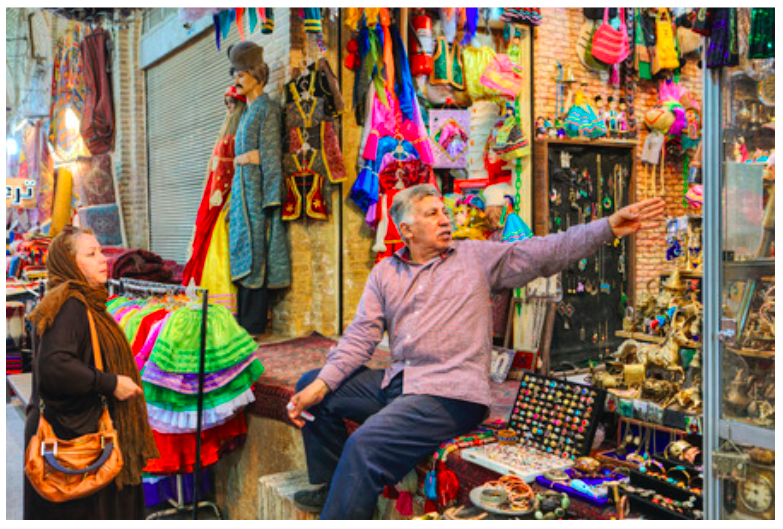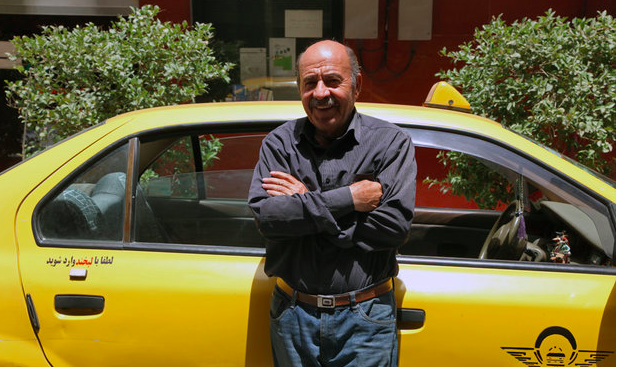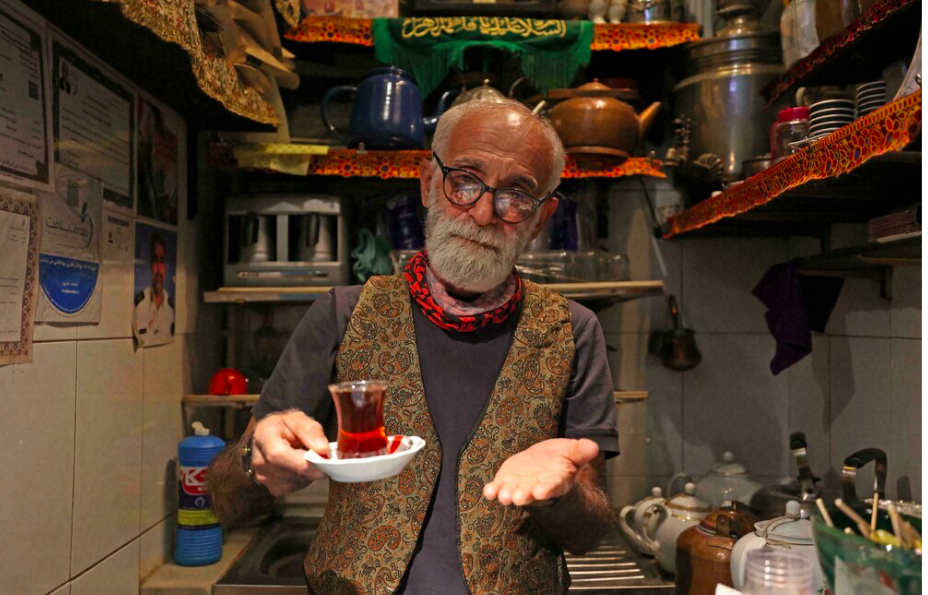When you travel to Iran, you will be amazed by the number of times you hear the expression “ghabel nadare” قابل نداره everyday. Particularly when you are about to pay for something, often you hear the salesperson say:
- Ghabel nadare! قابل نداره
I have to say, it’s quite a soothing feeling when you hear these words. It makes you feel somehow welcomed or respected. It’s unlikely you hear something similar in the Western world.
Why do you think “ghabel nadare” قابل نداره is such a common expression in Iran? Let’s get a bit deeper into this popular concept.
What Does ‘Ghaabel Na.dare’ قابل نداره Mean?
“Ghabel nadare” (Ghabel na.dareh) is a usual form of “taarof” تعارف in Iran. It literaly means “Its not worthy enough for you.”
In essence, the seller is saying that the money is nothing compare to the value he has for you as a person.
This basically implies “You may have it”, “It’s yours”, or “You don’t have to pay!”

What is taarof تعارف?
Taarof in Iran refers to a common cultural behaviour in which you extend your offerings to others as a sign of respect. Taarof تعارف is a popular concept, present in daily life of every Iranian.
Let’s examine what are the origins of the concept of “taarof.”
The real meaning behind the concept
Taarof (the smae as marefat) comes from the Arabic root, arafah عرف, which means “knowledge” or “getting acquainted”. This refers to the knowledge of spiritual self, the human condition, or God in general.
Since God is absolute kindness, the more you know god, the more you become like him. As a result, you try to be kinder to people around you.
Indeed, in Iranian learnings, people are not valued for their money nor their ranks, but for their kindness and the service they offer to others. The more you have “knowledge” (marefat) the kinder you are, while offering your services to others. And like God, you don’t ask anything in return.
This is where the concept “baa-marefat” بامعرفت arises from. “Baa marefat” is a person who has “marefat” (or knowledge), thus he is generous, loyal, and kind.
Another story relates to the root of the word tarof (arafa عرف), which means ‘to get to know each other’. There is a famous mountain in Saudi Arabia, “Mount Arafat” (in Persian“Sahraye Arafat” صحرای عرفات).
The legend says that Adam and Eve met there when driven away from heaven and landed on Earth. They reconciled in Mount Arafat where they got “to know” each other, they “got acquainted”.
There is a curious correlation between the legend and the concept of “Taarof”. In fact ‘taarof’ means expressing your “acquaintance”, with kindness, greeting, and welcoming words.

What to respond to “ghabel nadare”?
It’s not rare that when you are taking a taxi cab, right before paying, the driver says: “Ghabel nadare! قابل نداره”. This occurs specially when you just had a good conversation, etc.
So what should you respond, to the salesperson or cab driver who says “ghabel nadare”? Obviously, he just wants to show his respect. This doesn’t mean you have to go on without paying!
In this case, you may simply thank him by saying:
- “khaheshmi.konam” خواهش میکنم (please)
Then, you go on and pay him. This way you show “your” kindness to him.
Arafat, a legend behind the concept
There is a famous desert in Saudi Arabia, “Mount Arafat” or “Sahraye Arafat.” The legend says that Adam and Eve met there when driven away from heaven and landed on Earth. They reconciled in Arafat desert where they got “to know” each other, they “got acquainted”.
What does “pish-kesh” پیشکش mean in Farsi?
“Pish-kesh” پیشکش in Farsi is a terms used for a “gift, “present” or “donation.”
The term “pish-kesh” is often used as a ‘taarof’ (or offerings) when you offer someone to have an object that belongs to you. This happens particularly when someone makes a compliment about what you are wearing, an object you have at your home, etc.
“Pish” means front in Farsi, and “kesh” means to pull. “pish-kesh” refers to offering with “an open palm, in a gift giving sort of way”.
An example for pish-kesh پیشکش
You are at a friend’s house and you really like and admire a vase they have in their house. You say something like:
–What a beautiful vase! !چه گلدون قشنگی
Your friend simply says:
- Pish-kesh! پیشکش
This means “My gift to you!”, “You may have it!,” or “It’s yours!”
You can also use “Ghabel nadareh,” instead of “pish-kesh”. It will practically mean the same thing.
Obviously, you won’t accept the offer, and simply thank them. Occasions that you actually take the offer is very rare. However, it is considered a nice gesture of your friend to offer. By saying ‘pish-kesh’ your friend puts the value of your friendship a lot higher than that of the object.
links and credits:
We would like to thank Dr. Heydar Sayfi for his invaluable input about the real meaning and origins of the words ‘marefat’ and ‘taarof.’
https://www.persianstepbystep.com/persian-words-marefat/
https://www.latimes.com/local/great-reads/la-me-c1-tarof-20150706-story.html
http://www.bbc.com/travel/story/20161104-the-persian-art-of-etiquette

